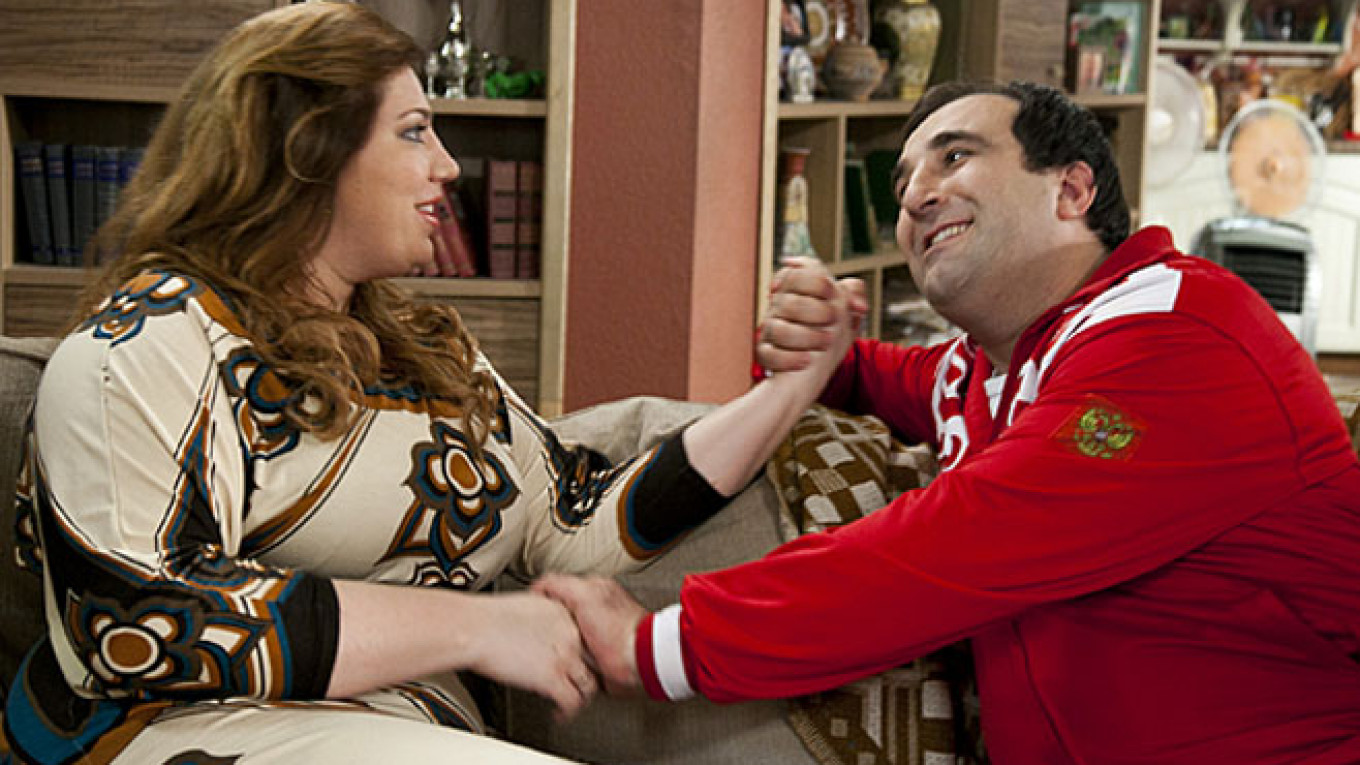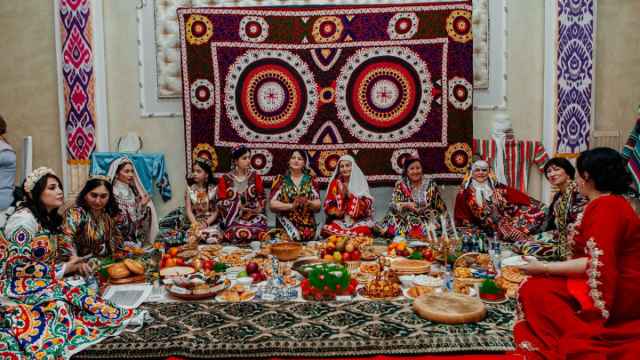Russia's largest television stations broadcast all over the country, bringing the same faces to Muscovites, Siberians and Caucasus natives alike. However, a new series is taking this a step further, representing Russia's ethnic diversity in one sitcom family and confronting the controversial topic of race head on.
A new sitcom that premiered last week on television station TNT, "Druzhba Narodov," or "Friendship of Peoples," takes its name from a Soviet slogan urging inter-ethnic unity and follows a Moscow household headed by a Dagestani man and his Russian Cossack wife.
Ethnic diversity is not new to Russian television — the show's lead, Timur Taniya, is an Abkhazian who rose to fame on the popular musical comedy show KVN — and mixed marriages between ethnicities are in fact reasonably common in Russia, yet the new series' Muslimovs are the first sitcom family to portray the life of a mixed ethnic family and laugh about the little cultural clashes that surround it.
The one-liners and fluffy light sitcom music in Druzhba Narodov may seem to create a startlingly different tone around inter-ethnic relations when compared with the violence during ethnic riots in the Moscow suburb Biryulyovo last year or repeated scenes of Central Asian men being stopped on the Moscow metro in the run up to the Sochi Olympics. Comments on the show's page on the social network Vkontakte range from support to doubt that the show can succeed, slurs against Caucasus natives and nationalist slogans.
However the show's producers insist that their new project is not about the "nationality question" in Russia. Responding to a question from The Moscow Times about whether audiences were ready for Druzhba Narodov given current events, the series' producers said by e-mail that the show was especially relevant now because, "The family is the model of a society in general, and a positive, uplifting series works only to increase understanding between people of different nationalities."
While the more conservative elements of Russian society are often the ones that make headlines, the show gives at times a surprisingly progressive view of upper-middle class Moscow life. Besides the diverse ethnic makeup of the show's family, the first four episodes feature a gay character who works at the Muslimov's dentist office. All the while Jibrail, played by Taniya, acts as the stereotypical conservative sitcom dad goofily trying to exert fatherly control over his family. Though when he tells his wife Lena, played by KVN alumna Yekaterina Skulkina, that his daughter's dress shows too much skin, his motivation may be thinking about what his Muslim relatives in Dagestan would think.
The series's family takes the last name and life story of its creators, Nina Muslimova and her husband Shaban, who also direct the show. The pair, a Lezgin — a person from southern Dagestan — man and Russian Cossack woman, live in Moscow with three children and said they write all the episodes together. Though the real-life Muslimovs do not own a dentist clinic, they said on the show's website that 90 percent of the situations are from their lives and explore what it is like to live in Moscow. "Yes we are a transnational family, but we do not live among Russians and Lezgins. We live in a multinational country, in a city where everything is very intertwined," they said.
Despite the fact that a Moscow university is also named after the ideal that the show's title somewhat ironically alludes to, Druzhba Narodov's creators say it is not designed to be pedantic and the series sticks very much to the playfulness of the sitcom form. The show's time slot is sandwiched between two episodes of Russia's most popular sitcom, "Interny" and according to statistics from TNT, the premier was watched by 12.6 percent of viewers ages 14 to 44 during its 8:30 p.m. time and 15.4 percent of 18- to 30-year-olds.
In interviews promoting the series, the Muslimovs made reference to laughter as a form of "psychological relief" for societal fears like xenophobia. It may be a treatment Russian television audiences are ready to receive, as the producers say the show's premiere did better than average for the channel.
Contact the author at c.brennan@imedia.ru
A Message from The Moscow Times:
Dear readers,
We are facing unprecedented challenges. Russia's Prosecutor General's Office has designated The Moscow Times as an "undesirable" organization, criminalizing our work and putting our staff at risk of prosecution. This follows our earlier unjust labeling as a "foreign agent."
These actions are direct attempts to silence independent journalism in Russia. The authorities claim our work "discredits the decisions of the Russian leadership." We see things differently: we strive to provide accurate, unbiased reporting on Russia.
We, the journalists of The Moscow Times, refuse to be silenced. But to continue our work, we need your help.
Your support, no matter how small, makes a world of difference. If you can, please support us monthly starting from just $2. It's quick to set up, and every contribution makes a significant impact.
By supporting The Moscow Times, you're defending open, independent journalism in the face of repression. Thank you for standing with us.
Remind me later.






